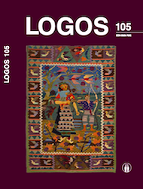Derrida’s Jewishness: Deconstructor of Own and Other Identity
Derrida’s Jewishness: Deconstructor of Own and Other Identity
Author(s): Basia NikiforovaSubject(s): Jewish studies, Structuralism and Post-Structuralism, Phenomenology, Identity of Collectives
Published by: Visuomeninė organizacija »LOGOS«
Keywords: deconstruction; Derrida; exile; identity; liminality; monolingualism;
Summary/Abstract: Derrida’s main source of creativity was “misreading” the philosophical and religious canon. Derrida, who is famous as a deconstructor of binary oppositions, feels himself beyond almost any binary opposition that he analyzed. Derridean researchers found an analogy between his types of liminality: the geographic or cultural outside space of the Marrano Jew and a philosophical position outside of both Athens and Jerusalem (Jewish and Greek traditions). He partly represents Marranos, who were expelled from the acculturated country but did not take a position in Jewish religion and existed at the margins of the host culture. Derrida was alienated from the place of his birth, native tongue and Jewish heritage. The aim of this article is to show how Derridean deconstruction destroys a hierarchy of identity and all subordinations between European and non-European identities.
Journal: LOGOS - A Journal of Religion, Philosophy, Comparative Cultural Studies and Art
- Issue Year: 2020
- Issue No: 105
- Page Range: 14-21
- Page Count: 8
- Language: English

